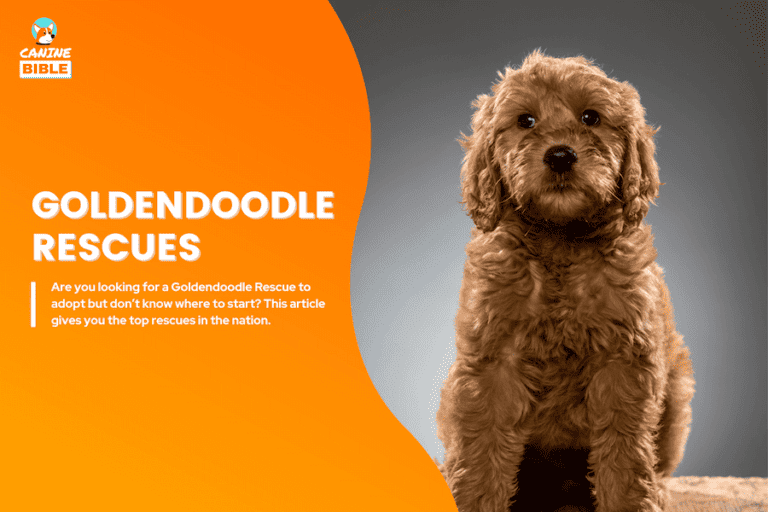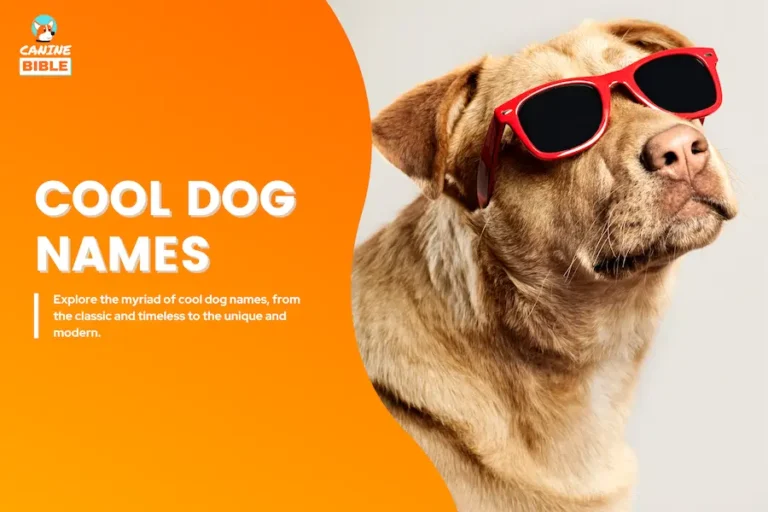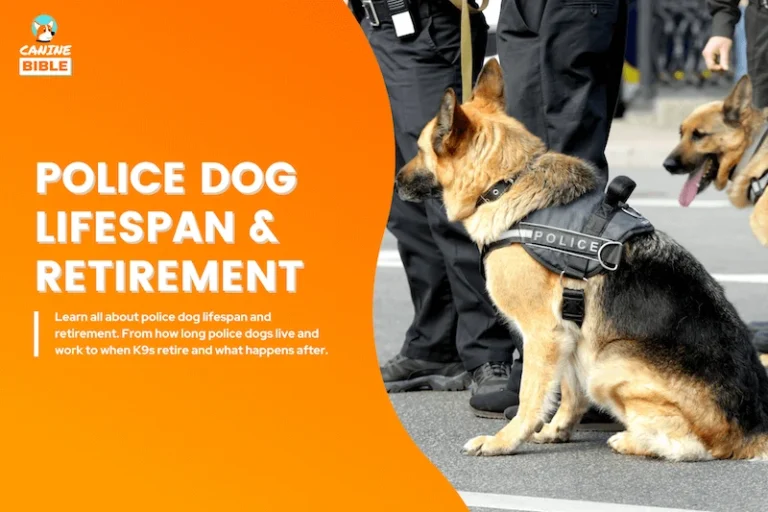How Long Do Dogs Remember People? Will My Dog Forget Me?

Canine Bible is reader-supported. We receive affiliate commissions via some of our links. This doesn’t affect rankings. Learn more.
Anyone who has ever been greeted by an ecstatic dog after a long day knows that our furry friends seem to remember us, but just how long do dogs remember people? Will dogs forget people after a few weeks, months or years? This article examines scientific studies, expert opinions, and anecdotal evidence to understand the extent and nature of a dog’s memory. As we navigate through the factors influencing their recall abilities, from the emotional bond between dog and owner to the impact of age and experience, we aim to provide a comprehensive understanding of how and why dogs remember the people they love. Let’s dive in!

How Long Do Dogs Remember People?
Based on scientific evidence, dogs can indefinitely store visual, olfactory, and auditory experiences in their brains. Dogs may be unable to remember a specific event, but your dog will associate your gestures, movements, voices, and smell with you. Most dogs will remember people for their entire lifetime through sensory experiences, emotional connections, and associative memory. A lack of interaction, bonding, and other factors may influence the length of time a dog can remember you.
How Do Dogs Remember People? According to Science
Scientific research into canine memory provides insight into how dogs form memories and how they can remember people. Three key cognitive areas help dogs remember people.
Facial Recognition
Dogs rely on their visual memory to remember something. A study by the University of Padua titled “Discrimination of Familiar Human Faces in Dogs” revealed that dogs could recognize and discriminate between their master and familiar people based solely on the visual features of their faces.[1] Further research found that dogs can differentiate between familiar and unfamiliar faces in photographs, even if the photographs are upside down.[2],[3] Researchers discovered the presence of a face-selective region in the temporal cortex of dogs, which is involved in processing faces.[4] The fact that dogs can tell people’s faces apart shows they are good at understanding what they see. So, as long as your dog has healthy eyes, he won’t forget you.
Dog Voice Recognition
Studies show that dogs can recognize and distinguish their owner’s voice from others.[5] They use the left hemisphere of the brain to understand the meaning of words and the right hemisphere to understand the tone of voice.[6] When dogs hear happy words said in a happy tone, it makes them feel good, lighting up the reward area in their brains. However, the dogs don’t feel as good when happy words are said in a plain tone. These findings suggest that dogs can use acoustic cues, similar to humans, to identify or remember familiar speakers.
Dog Sense of Smell
A dog’s scent is another way they can remember you by creating a memory of your smell. Research has found that only the scent of a familiar human significantly activates the dogs’ caudate nucleus.[7] The caudate nucleus is a critical brain structure that plays a vital role in learning, specifically in storing and processing memories. The study also revealed that familiar human scents activated the caudate more than any other scent, suggesting that dogs might remember a familiar human smell more than others.
Dogs have 300 million olfactory receptors in their noses, vastly outnumbering the 6 million in humans, which makes a dog’s sense of smell 10,000 to 100,000 times more sensitive than ours. Additionally, the part of a dog’s brain that analyzes smells is proportionally 40 times larger than that in humans.
To put this into perspective, a dog could detect a teaspoon of sugar in a million gallons of water. What does that mean in terms of dogs remembering you?
Dogs don’t need to be close to you to recognize your scent. They can often identify you from a distance, which means they might remember and get excited about your arrival even before you’ve entered the room.
True stories that verify a dog’s olfactory prowess and ability to recall smells include:
Do Dogs Remember People?
Yes, dogs do remember people and their ability to do so is facilitated by four different types of memory: episodic memory, associative memory, short-term memory, and long-term memory. Each type plays a distinct role in how dogs perceive and remember individuals. These memory types work together to help dogs navigate their social world and maintain bonds with the people in their lives.
Episodic-like Memory in Dogs
A study published in Current Biology provides evidence that dogs can recall complex events, like human actions, even when they don’t expect to be tested on their memory. This suggests they have an episodic-like memory.[8] Episodic memory in dogs refers to their ability to remember specific past events, including the what, where, when, and associated emotions. This indicates that dogs are likely to remember you and your shared experiences.[9]
Additionally, renowned dog psychologist and author Dr. Stanley Coren mentioned that a disabled man he interviewed relied on a “memory assistance dog” to help with episodic “new memories,” such as locating an exit or remembering where he parked his car.[10] This further supports the idea of a dog’s capacity to remember things.

Dog Short-Term Memory
A recent investigation by Stockholm University and Brooklyn College about dogs’ short-term memory (STM) revealed that their STM is quite fleeting, generally lasting only a few minutes.[11] Similarly, Dr. Bruce Kornreich, associate director at the Cornell Feline Health Center in Ithaca, New York, says, “a dog’s short-term memory is anywhere between 5 and 30 minutes.” During this time, dogs can remember people, locations, or tasks they’ve just encountered. A dog’s STM typically stores useful information about what could help them survive.
Dog Long-Term Memory
In dogs, long-term memory (LTM) is like a hard drive, where information is stored more permanently. Dogs can remember trained commands, familiar faces, and places over the years, especially if reinforced through repeated exposure and positive experiences.
One study involved 12 pet dogs tested for their ability to imitate human actions after delays of 1 to 24 hours. The dogs consistently imitated well, regardless of the increasing retention intervals.[12] This ability to imitate after delays supports the idea that dogs use long-term declarative memory, involving the conscious recall of facts and events, which is considered a higher cognitive ability.
Similarly, another study testing a dog’s ability to remember information over time found that most dogs maintained a long-term memory for at least two months.[13] This suggests that the dogs were not just learning associations temporarily but were forming lasting memories.
Dog Associative Memory
Associative memory is the process by which dogs link one thing with another. For example, they might associate the sound of a treat jar being opened with getting a treat or the sight of a leash with going for a walk. Dogs will form positive and negative associations with you and their environment throughout their lives. This makes it hard for dogs not to remember you, especially if you live together for a long time.
Brian Hare, a dog cognition expert at Duke University, says, “Our dogs’ memories aren’t based simply on repetition and reward.”

How Long Can A Dog Remember A Person?
Dogs can remember people, especially their owners or those they have strong emotional bonds with, for a long time, potentially years. The exact duration can vary due to several factors, but many anecdotes and some studies suggest dogs can remember familiar people after long periods of separation.
Combining a dog’s abilities to remember scents, recognize faces and voices, and its long-term memory, it’s highly likely that your dog has the ability to remember you no matter how long you’ve been gone.
Dogs can form powerful, positive associations and memories of their owners, likely triggered by their scent, facial features, voice, or other aspects of the owner. At the same time, dogs develop a strong emotional bond with their person. This bond can be either positive (through love and care) or negative (through fear and harm). Emotionally charged memories are generally retained longer. Even if you haven’t been together for a while, your dog will use all these cues to tap into your connection.
Do Dogs Forget People?
How long does it take for a dog to forget a person? It’s generally believed that a dog won’t forget a person, as they can remember someone for an extended period. It’s safe to say that your dog will not forget you after two weeks, a month, or even if you are gone for many years.
Even if a dog seems to have forgotten someone, they may quickly relearn who the person is upon reuniting. Dogs are skilled at picking up cues and may quickly connect someone with past positive experiences once they interact again. Sensory cues like scent and voice can trigger memories. So, even if a dog appears to have forgotten someone, a familiar scent or sound might spark a sense of recognition.
Your dog may bark at you as if they don’t recognize you after a long separation, but this doesn’t necessarily mean they’ve forgotten you. They may just be feeling anxious or confused about your return.
Reasons Dogs May Not Remember You
Whether or not they forget someone depends on various factors. Here’s what is generally understood about dogs and their memory of people.
Time
The longer a dog goes without seeing a person, the more likely the memory will fade. However, even if the vividness of the memory diminishes, some residual recognition might remain.
Lack of Reinforcement
Memories reinforced through regular interaction are more likely to be retained. If a person disappears from a dog’s life entirely, with no reminders or reinforcement, the memory might fade faster.
Age and Cognitive Decline
As dogs age, they may experience cognitive decline similar to humans, which can affect memory. Conditions like Canine Cognitive Dysfunction (CCD) can lead to confusion and memory loss.
Can Dogs Remember You After Years?
You’ve likely seen YouTube videos of dog owners surprising their dogs after being away for several months or even years. And sure enough, dogs instantly recognize their owners and greet them enthusiastically.
These dog reunion stories serve as clear evidence that dogs remember their owners no matter how long away we are. Let’s take a look.
Will My Dog Remember Me After 10 Years?
There’s no definitive scientific answer to whether a dog will remember you after 10 years; however, anecdotal evidence and several factors suggest that it’s possible, especially if you have a strong bond.
Evidence: A dog named Minion had disappeared for over ten years. After being reunited with her family, she was shy at first, but suddenly, her memories came back, and she couldn’t contain her happiness after seeing her owners.
Will My Dog Remember Me After 5 Years?
Yes, it’s possible for a dog to remember you after 5 years, particularly if you had a strong, positive relationship.
Evidence: A dog who was stolen was reunited with family and remembers them five years later.
Will My Dog Remember Me After 3 Years?
It’s quite likely that your dog will remember you after 3 years.
Evidence 3: A dog named Jorge instantly recognizes its owner after being apart for three years. The dog also remembered other family members.
Will My Dog Remember Me After 3 Months?
Yes, it’s highly likely that your dog will remember you after 3 months.
Evidence: Dog dad reunites with dog after months of searching for his beloved dog. This dog uses his owner’s scent and facial features to remember his owner.
How Long Do Dogs Remember Your Scent?
Dogs have an incredibly powerful sense of smell and can remember scents for a long time, potentially even years. Some breeds may have better scent memory than others due to their historical roles (e.g., hunting or tracking dogs). Numerous stories of dogs reuniting with owners after months or years and showing immediate recognition suggest that dogs can remember scents over long periods.
Neuroeconomist Gregory Berns from Emory University suggests that your scent activates a dog’s brain in a way similar to how humans respond to a loved one’s perfume or cologne. This implies that a human’s scent is stored in a dog’s brain, enabling them to remember you merely through your smell. In an interview with Discovery News, Berns said that:
This finding demonstrates that dogs have mental representations of us which persist even when we are not in the room with our dogs. This shows how powerful a dog’s brain is at recalling scents.“It’s one thing when you come home and your dog sees you and jumps on you and licks you and knows that good things are about to happen. In our experiment, however, the scent donors were not physically present. That means the canine brain responses were being triggered by something distant in space and time.”
While specific research on the duration dogs can remember a person’s scent is limited, a study involving cats concluded that kittens form a long-lasting memory of their mother’s body odor, enabling them to recognize her by scent long after separation.[14] Similar studies and anecdotal evidence suggest that dogs might exhibit comparable abilities. Known for their robust long-term olfactory memory, dogs are believed to retain the scents of their parents, siblings, and humans for several years.[15]
Signs Your Dog Is Remembering A Scent
These are the most common behaviors and signs of dogs remembering scents they have smelled in the past.
- Dogs will begin to sniff around the person or object you brought home
- Once the sniffing is done and they’ve recognized the scent, they may tilt their heads to the place where it came from
- After this, your dog may become excited and start jumping and wagging its tail
- This may indicate that your dog remembers a scent.
- They may not remember every detail associated with the scent, but remember if the scent was associated with something good or bad
How Long Will Your Dog Remember Another Dog Scent?
To form memories of other dogs, canines typically begin by sniffing each other for the first few minutes. After this initial interaction and some playtime, they are likely to remember each other for weeks. Allowing your dog to socialize with other furry friends enables them to build friendly and amazing relationships. Socialization not only fosters companionship but also helps them remember their tail-wagging friends indefinitely.
Top 10 Dog Breeds That Will Remember You
Afraid your dog will not remember you? Here are ten dog breeds often celebrated for their memory and overall cognitive abilities.
Frequently Asked Questions
Do Dogs Remember People?
In conclusion, dogs do remember people, and they use a combination of sensory information, associative learning, and emotional connections to do so. The strength and duration of their memory can be influenced by the nature and frequency of their interactions with individuals and their own cognitive abilities and experiences.
A dog’s memory is so complex and good at the same time that he will remember how you look, smell, voice, movements, and any specific events and the emotions and feelings associated with you or another person they’ve met. If you’ve made a positive impression on a dog, it’s quite likely that they will remember you forever.
Like It? Subscribe & Share!
Sources
Canine Bible uses only high-quality sources, including peer-reviewed studies, to support the facts within our articles. Read our editorial process and product review methodology to learn more about how we fact-check, test products, and keep our content accurate, reliable, and trustworthy.
- Huber, L., Racca, A., Scaf, B., Virányi, Z., & Range, F. (2013). Discrimination of familiar human faces in dogs (Canis familiaris). Learning & Motivation, 44(4), 258–269.
- Vainio, O. (2014). How dogs scan familiar and inverted faces: an eye movement study. Animal Cognition, 17(2), 793-803
- Eatherington, C. J., Mongillo, P., Lõoke, M., & Marinelli, L. (2020). Dogs (Canis familiaris) recognise our faces in photographs: implications for existing and future research. Animal Cognition, 23(4), 711-719.
- Dilks, D. D., Cook, P., Weiller, S. K., Berns, H. P., Spivak, M., & Berns, G. S. (2015). Awake fMRI reveals a specialized region in dog temporal cortex for face processing. PeerJ, 3, e1115.
- Gábor, A., Kaszás, N., Faragó, T., Pérez Fraga, P., Lovas, M., & Andics, A. (2022). The acoustic bases of human voice identity processing in dogs. Animal Cognition, 25(4), 905–916.
- Andics, A., Gábor, A., Gácsi, M., Faragó, T., Szabó, D., & Miklósi, Á. (2016). Neural mechanisms for lexical processing in dogs. Science, 353(6303).
- Berns, G. S., Brooks, A. M., & Spivak, M. (2015). Scent of the familiar: An fMRI study of canine brain responses to familiar and unfamiliar human and dog odors. Behavioural Processes, 110, 37-46.
- Fugazza, C., Pogány, Á., & Miklósi, Á. (2016). Recall of Others’ Actions after Incidental Encoding Reveals Episodic-like Memory in Dogs. Current Biology, 26(23), 3209-3213.
- Duranton, C., Jeannin, S., Bedossa, T., & Gaunet, F. (2017). Studying episodic memory: dogs as a biological model?. Med Sci (Paris), 33(12), 1089-1095.
- Coren, S. (2014, February). The Memory Abilities of Dogs. Psychology Today.
- Bednekoff, P. A. (2015). Animal memory: A review of delayed matching-to-sample data. Behavioural Processes, 111, 3-13.
- Fugazza, C., Pogány, Á., & Miklósi, Á. (2016). Do as I … Did! Long-term memory of imitative actions in dogs (Canis familiaris). Animal Cognition, 19(2), 263–269.
- Dror, S., Miklósi, Á., Sommese, A., Temesi, A., & Fugazza, C. (2021). Acquisition and long-term memory of object names in a sample of Gifted Word Learner dogs. Royal Society Open Science, 8(10).
- Szenczi, P., Urrutia, A., Hudson, R., & Bánszegi, O. (2022). Are you my mummy? Long-term olfactory memory of mother’s body odour by offspring in the domestic cat. Animal Cognition, 25(1), 21-26.
- Jaskinia, M. (n.d.). META-ANALYSIS OF SCENT DETECTION CANINES AND POTENTIAL FACTORS INFLUENCING THEIR SUCCESS RATES.
Canine Bible authorship represents the unified voice of our entire editorial team and our in-house veterinarians rather than a single author. Each article, blog post, and review published under the Canine Bible name undergoes a rigorous review process, involving all team members to guarantee accuracy and up-to-date in accordance with the latest veterinarian research. This collaborative effort is an integral part of our editorial process and aligns with our four pillars of content creation. This approach ensures our content is backed by expert knowledge and factual information, offering our readers reliable, actionable, and trustworthy content.







